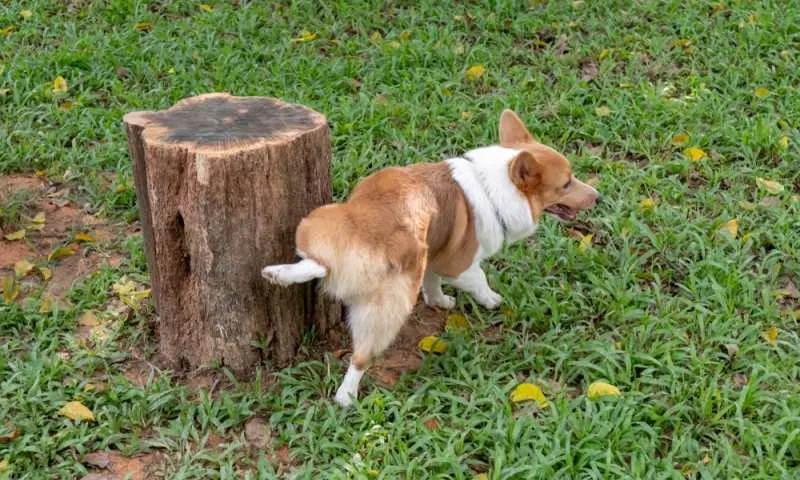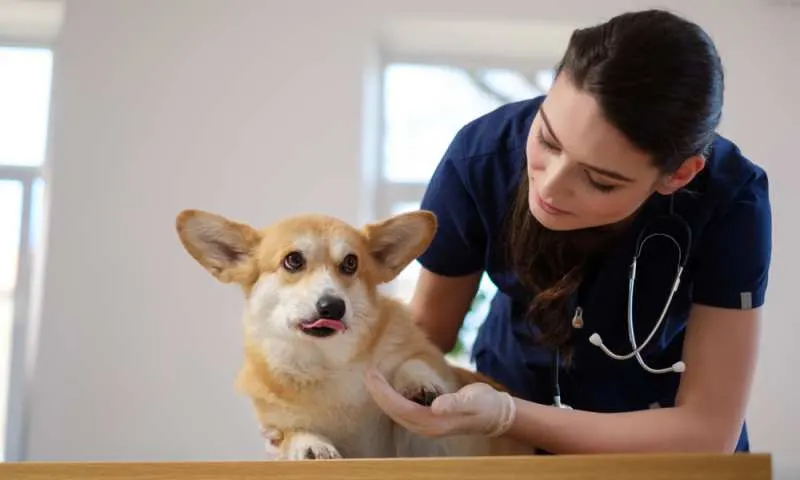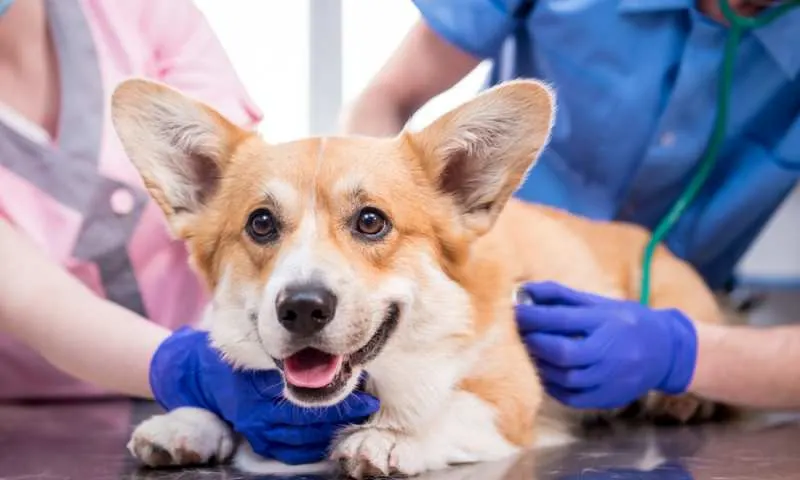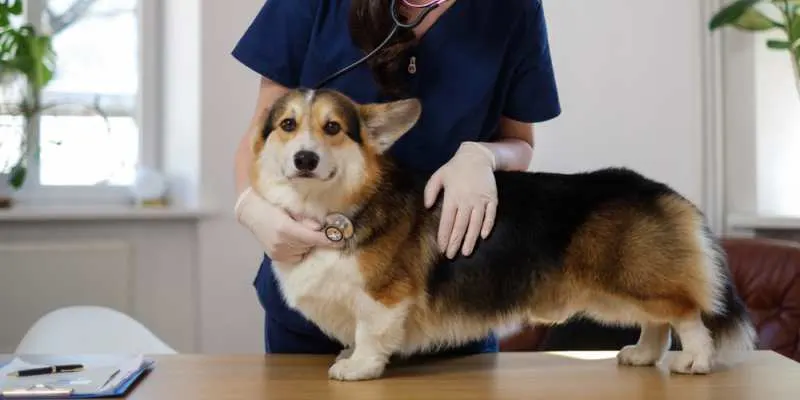Keeping your pet healthy is every dog owner’s priority. So it’s vital to know whether or not the specific breed you have running around the house is more likely to develop a particular disease or condition.
Many health problems plague our little friends, so staying on top of them can get overwhelming. Don’t worry, though; you don’t have to learn what each possible problem looks like right away!
But in a pinch, these sorts of articles are here to give you a couple of clues as to what your puppy might be going through.
It’s important to know what to do with your pets when they’re not feeling well. And while there are ways to treat them at home, we always suggest contacting your veterinarian first!
With all that said, let’s get to the show!
We’re talking about Corgis here, and we’re focusing on UTI (Urinary Tract Infection). So are Corgis prone to UTIs?
Well, we went out and did some research to find the answers! These infections are usually not that serious, but there are possible complications with all health problems.

Are Corgis Prone To UTI?
Let’s get the straight answer out of the way first before we go deeper into the details of the matter:
Corgis are NOT prone to UTIs as a breed, but we wish it were that simple!
Urinary tract infections are just very common in dogs, so you can’t say that one breed has more chances of suffering from them than the other. Every dog, unfortunately, has a good chance of getting its urinary tract infected.
Now we know that that might sound scary, but it’s essential to understand the statistics here:
Sure, many dogs get UTIs, but they mostly get just the infection and none of the complications. Once we get to the more severe forms of the condition, the percentages start weighing back in our favor.
So why is it so common?
Well, the answer here is relatively simple. We’ll get into the details in a minute, but here’s the short version of the story: Bacteria get into the urinary tract. The immune system is, for whatever reason, weaker at the time. The bacteria grows inside the tract.
That’s about it! Of course, there is more to it, like what type of bacteria it is and how weak the immune system is at the time of the infection. All of these factors can impact how much of an issue the UTI represents to your Corgi.
But the fact is that you should expect to see this happen to your puppy at some point in their lifetime!

The Basics of A Urinary Tract Infection
So we’ve explained what exactly a UTI is, but how exactly does it happen? Do bacteria just magically turn up inside the urinary tract?
Well, the answer is probably the first thing that you thought of – peeing!
Our dogs pee in a lot of strange places. As soon as your dog learns that it should pee outside and not on your brand new carpet, the sport of territorial marking starts to seem like the perfect profession for your puppy!
Well, for the males at least, as they’re more famous for their markings.
The problem with this activity is that these marks are left all over the place, and the spots are not exactly the cleanest places in town.
Bacteria develop on the streets and in nature. So, when your Corgi is sniffing around in tall grass, for instance, there’s a good chance that some bacteria will attach itself to him!
If we add an immune system that’s not at 100% to the situation, the bacteria will have a higher chance of developing. That will cause your dog’s body to react to try and solve the issue, which means the urinary tract will swell up.
There will be some pain involved, and thus, the symptoms of the condition appear!
Now, we mentioned males and their habit of marking spots while outside. But don’t be fooled; females leave their trace all over the place, as well.
You probably know how it works:
When in heat, a female dog will leave marks outside to get the word out there that she’s ready to mate. Males pick up on the scent and leave their mark on top of it to show that they’re interested and show off who they are!
Speaking of sexes, there is something to note here when it comes to these infections:
Females are more likely to get UTIs, and the reason for it is pretty simple – the bacteria have a shorter distance to travel! The males have a longer tract, which means that it’s easier for the bacteria to develop in the females.

Symptoms Of UTIs In Dogs
So what are the symptoms of a UTI?
Well, there are a couple, we’ll mention the more obvious ones, but it’s essential to check for the not-so-common signs, as they can indicate that there’s a more severe problem at hand.
It’s also crucial to note that there are sometimes just no visible symptoms! Your doctor could be analyzing your dog’s urine for something wholly different and figure out that there’s an infection present!
In these cases, the UTI isn’t very serious, but there’s always a chance of becoming more severe with time if nothing is done about it.
Let’s take a look at what we’re dealing with here:
Painful Urination
That may not be something that everybody manages to notice the second it starts. Your puppy should not be in pain when trying to urinate, but the problem is that dogs don’t usually show that they’re in pain until it reaches a certain level.
So if you hear your dog whimpering while trying to pee, take action right away and call your vet.
Urinating In The House When Potty Trained
If your Corgi is over the age of one and suddenly starts having accidents all around the house – it’s not doing it on purpose!
There always is a chance that your dog just never was properly trained only to pee outside.
People often just assume that the dog learned what it needs to do. But sometimes, their bladders just get strong enough to hold in until they do go outside!
But if your dog just suddenly starts urinating on the floor out of nowhere – there is something wrong.
Wanting To Go Outside More Often
At the beginning of a UTI, your dog will still be able to hold it (so to speak) even though they need to pee much more often than usual. But the fact that they do need to pee more frequently will mean that they’ll want to go outside all the time.
Now, the reason for this could be that your pup is bored, but if it suddenly starts happening, you could be looking at an infection.
Weak Urine Stream And/Or Leaking
This symptom usually comes in combination with the other symptoms that we already mentioned.
Urinating becomes painful for your dog, and they just don’t pee as much as a result. Because of this, the bladder gets swollen, which makes urinating even MORE painful.
It’s a vicious cycle!
Constantly Licking Around The Urinary Opening
Your dog will figure out that there’s something wrong, don’t you worry.
Because of this, your dog will try again and again to lick the troubled area in an effort to clean it. There could also be some itching and burning sensations involved, which will make it even more uncomfortable for them.
Fever
The last possible symptom that needs a mention is a fever, as it is a final sign that the dog’s body is trying its best to fight off an infection.
It usually means that the infection has spread, so it’s of utmost importance that you seek professional help!
Bloody Urine
After all the symptoms that we mention come bloody urine. The final and most severe sign can indicate that your dog has a UTI or something much more severe.
If you do notice that your dog has blood in its urine, contact your vet immediately!

Treatments Of UTI In Dogs
So now that we talked about all of the symptoms, what does the treatment look like?
Well, it’s pretty simple:
Once you go to your vet with any of these symptoms, there’s a good chance that they will ask you to bring in a urine sample – if the dog is not there with you already.
Once you do, they will test it for bacteria, crystals, and proteins. Based on this, they will make a diagnosis of whether or not there’s an infection.
And just like with any infection, they will probably give an antibiotic treatment that usually lasts up to 10 days. How strong those antibiotics need to be will depend on how strong the immune system is.
That is the primary and most common treatment, but your vet will alter it if there are any other complications.
Complications
One of the things that alarm most people is when infection of the urinary tract comes back often. That’s because it’s usually a sign of a more severe underlying disease or condition.
We mean that in these cases, UTIs are a symptom of something more serious. We don’t want to create any sort of panic while talking about these complications, but it’s important to mention them.
UTIs can be a symptom of:
- Poisoning
- Kidney Disease
- Trauma
- Cancer
- Kidney or urinary tract stones
Because of these more severe complications, it’s essential to reach out to your vet as soon as you see anything that could indicate a UTI. Reacting fast is sometimes crucial in being able to treat any sort of serious condition!

Final Words
So there you have it! Are Corgis prone to UTI?
Well, they’re not prone to it any more than other breeds. They are prone to them just because it’s a widespread condition. So it’s essential to know how to spot the symptoms as early as possible.
That way, your Corgi can get through the uncomfortable and painful infection sooner rather than later. And don’t sweat it if you didn’t notice anything. As we said, sometimes there are no symptoms to be found!
All in all, keep an eye on your Corgi from time to time. As soon as you see them feeling down, there’s probably something wrong. So get those little cuties to the doctor’s office and get them treated so they can get back to jumping around the house ASAP!

